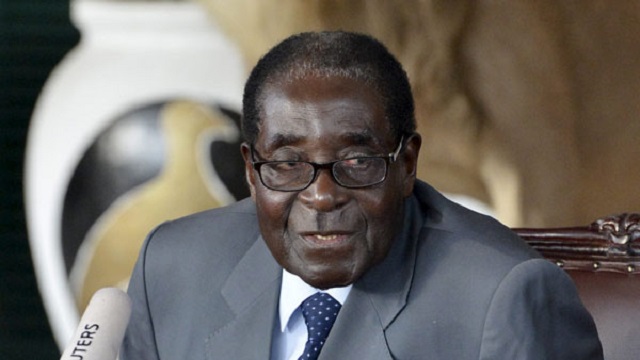The European Union (EU) and the US imposed sanctions on Zimbabwe in the early 2000s, alleging human rights abuses by Mugabe’s government. Mugabe issued a threat statement against western companies to take stern measures against British and US companies operating in that country if they continued to “harass” them.
Zimbabwe’s President Robert Mugabe on Sunday warned to retaliate against Western sanctions by punishing their businesses operating in the country.
Mugabe issued the strongest warning yet of revenge against the more than decade-old sanctions at the burial of a corporate leader, Mike Karakadzai, who was a member of his Zanu-PF party.
He said that Zimbabwe would take stern measures against British and US companies operating in that country if they continued to “harass us”.
“Britain has several companies in this country and we have not imposed any controls or sanctions against them. But time will come when you say well, tit for tat — you hit me and I hit you. You impose this on me and I will impose this on you,” Mugabe said.
He warned that Zimbabwe’s attitude towards the sanctions will not remain passive as it was in the past.
The European Union (EU) and the US imposed sanctions on Zimbabwe in the early 2000s, alleging human rights abuses by Mugabe’s government.
The embargoes that included travel and financial restrictions were partially lifted over the last two years in response to progress on reforms made by the government that comprised Mugabe’s party and the two other political parties.
This resulted in most of Mugabe’s close associates being removed from the sanctions list while Mugabe and a few members of his inner circle remained on the list.
The EU, Britain and the US have all refused to accept Mugabe’s victory in last month’s elections, alleging the polls were flawed.
The US has since said it will not lift sanctions on Zimbabwe until free and fair elections are held in the southern African country, while the EU has indicated it will review its relations with Zimbabwe in light of the “flawed” elections.
Two of the country’s biggest banks are British owned while some of the major mines in the country are owned by Western countries.
-IANS





